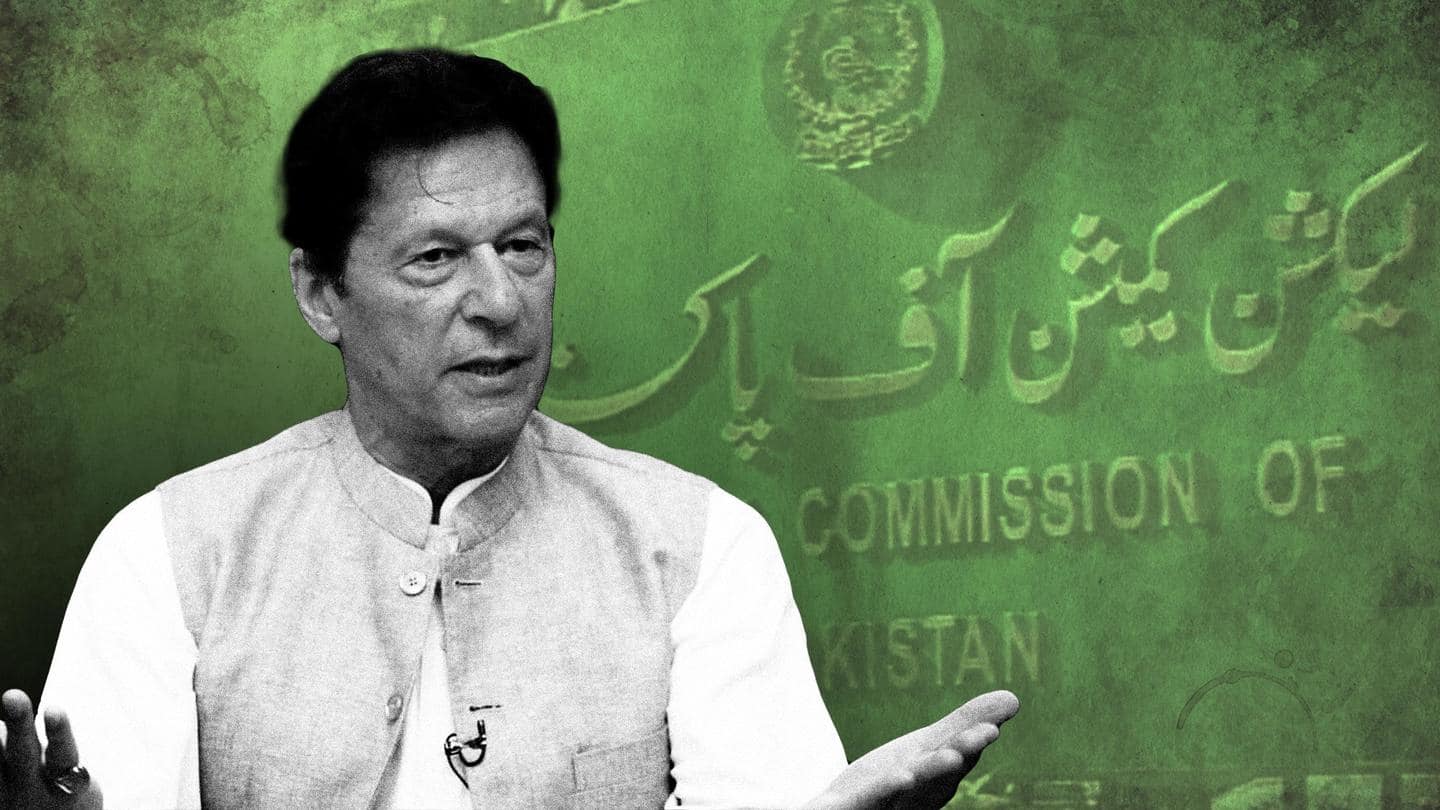
Pakistan's election commission disqualifies ex-PM Imran Khan for 5 years
What's the story
The Election Commission of Pakistan (ECP) disqualified former Prime Minister Imran Khan for five years from holding public office on Friday. He is charged with concealing income from selling state gifts received from foreign dignitaries and submitting a false statement in the Toshakhana case. Khan is now set to lose his seat in the National Assembly and wouldn't be eligible to become an MP.
Context
Why does this story matter?
This comes months after Khan was ousted from power following a no-confidence motion in the parliament. After coming to power in 2018, Khan reportedly received expensive gifts from Arab rulers on their official visit to the country. The same were deposited in the Toshakhana or state repository, which Khan bought back later at a discounted price as per the law.
Twitter Post
Foreign affairs minister Bhutto welcomed decision
Election commission of Pakistan has found Imran Khan guilty of corrupt practices. He now stands disqualified. He who would spread lies about alleged corruption of his political opponents has been caught red handed.
— BilawalBhuttoZardari (@BBhuttoZardari) October 21, 2022
Information
Khan is on road demanding early election
Since losing power, Khan has accused the army and his opponents of colluding with the US to oust him. He has been on road for the last six months demanding an early election. He had earlier declared that he would march to Islamabad to push for his demands. Khan's party Pakistan Tehreek-e-Insaf (PTI) has said it will challenge the decision in the high court.
Law
Law allows leaders to buy from Toshakhana
Lawmakers are allowed to buy gifts from the state repository at a discounted price and Pakistan's law doesn't bar leaders from selling them as well but concealing transactions is illegal. Items priced above a certain bracket must go to the Toshakhana but in some cases, the lawmakers who received it are allowed to buy it back at 50% of the value.
Changes
Khan raised the discount rate from 20% to 50%
The discount rate before Khan came to power was at 20% which he then raised. The ruling coalition government filed a case against Khan (70) in August seeking his disqualification for failing to declare assets. The Toshakhana was established in 1974 under the Cabinet Division and stores precious gifts of parliamentarians, rulers, and bureaucrats received from heads of other states and foreign dignitaries.